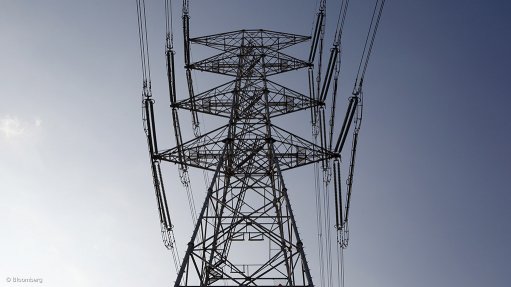
Photo by: Bloomberg
State-owned Eskom has confirmed it has agreements in place with its Zimbabwean and Zambian counterparts Zesa and Zesco respectively to supply up to 300 MW of power during off-peak periods.
This formed part of its commitment to the Southern African Power Pool (SAPP).
Media reports on Thursday revealed that Zambia had asked South Africa for up to 300 MW of emergency power to ease electricity supply constraints.
“While the power system is stable, we have been supplying both neighbouring countries under the standard agreements at peak and under the new bilateral agreement during off-peak hours and during peak when we have a surplus,” Eskom said in a statement.
In Zambia, Eskom signed a power supply agreement with Zesco and an independent power producer Copperbelt, both members of the SAPP. Eskom also had an existing agreement to supply up to 50 MW of power to the country.
“We are aware that our responsibilities to supply our neighbouring countries may create an apparent conflict when the domestic supply-demand balance is constrained. To reduce the impact of exports, we have ensured that power supply agreements with SAPP trading partners are sufficiently flexible to allow for the following controls during emergency situations in South Africa,” it explained.
As such, discretionary agreements would be declined in advance in anticipation of a tight supply situation; international industrial end-use customers would be interrupted in line with the terms of their agreements and nonfirm agreements with Botswana and Namibia would be reduced in proportion to Eskom’s local large customers in the event of an emergency, and reduced to zero if rotational load-shedding was required.
Further, the company’s firm supply agreements to Swaziland and Lesotho would continue to be supplied, with the countries urged to reduce consumption. “However, if rotational load-shedding is required in South Africa, they are required to undertake proportional load shedding,” it noted.